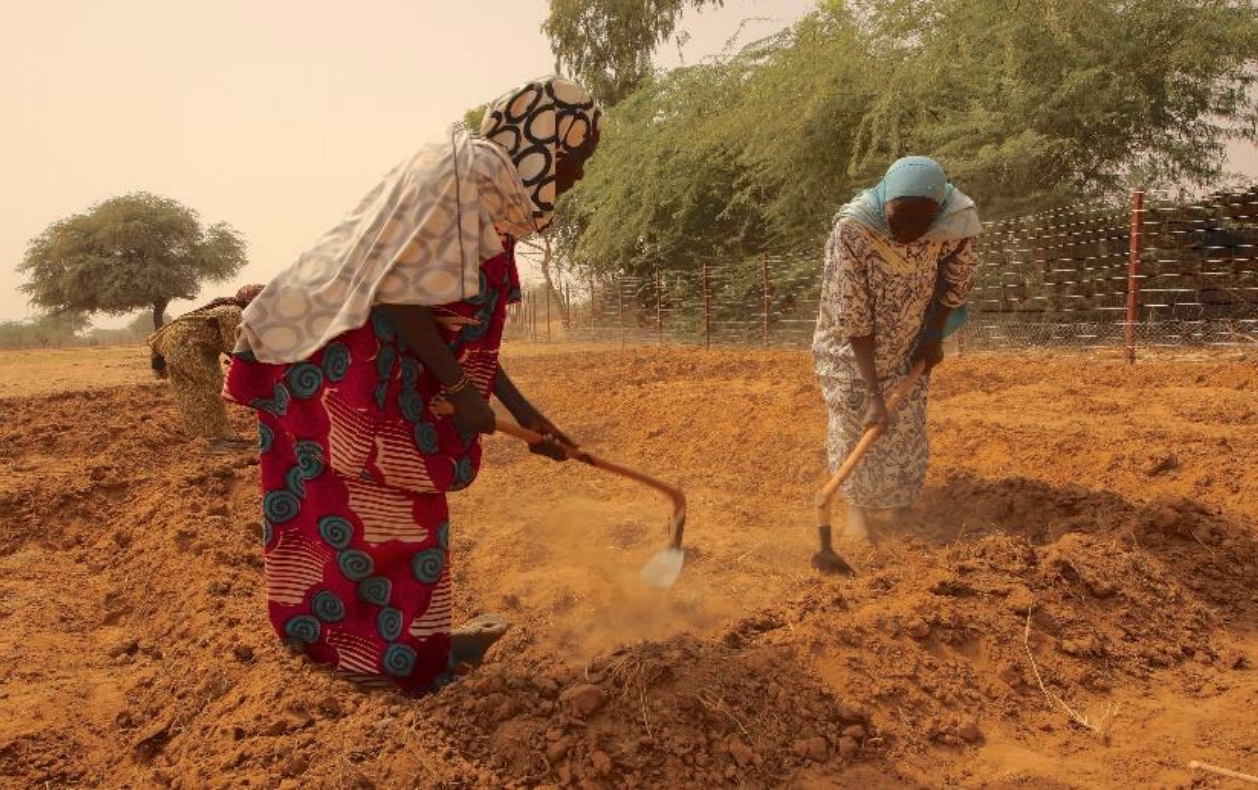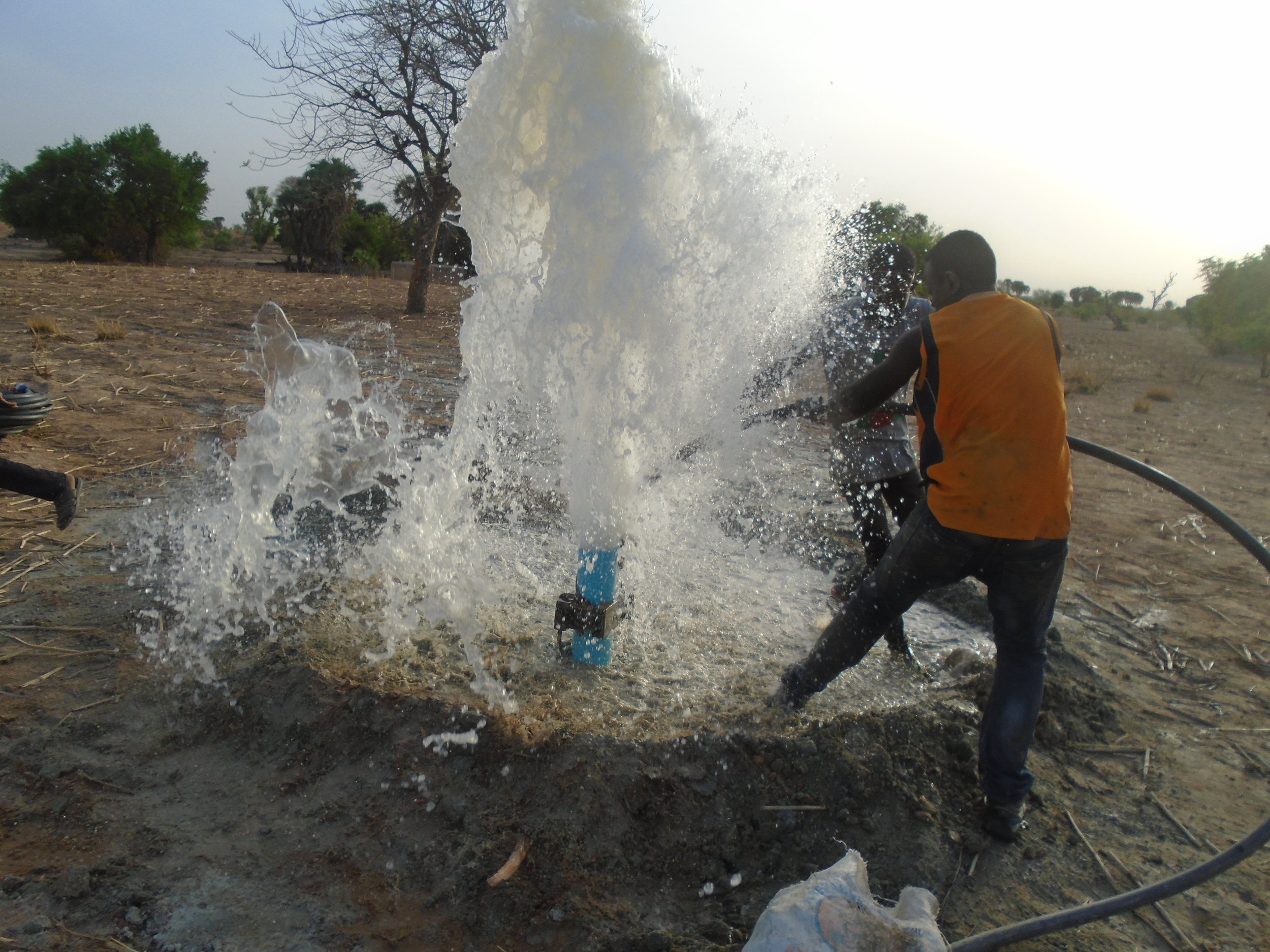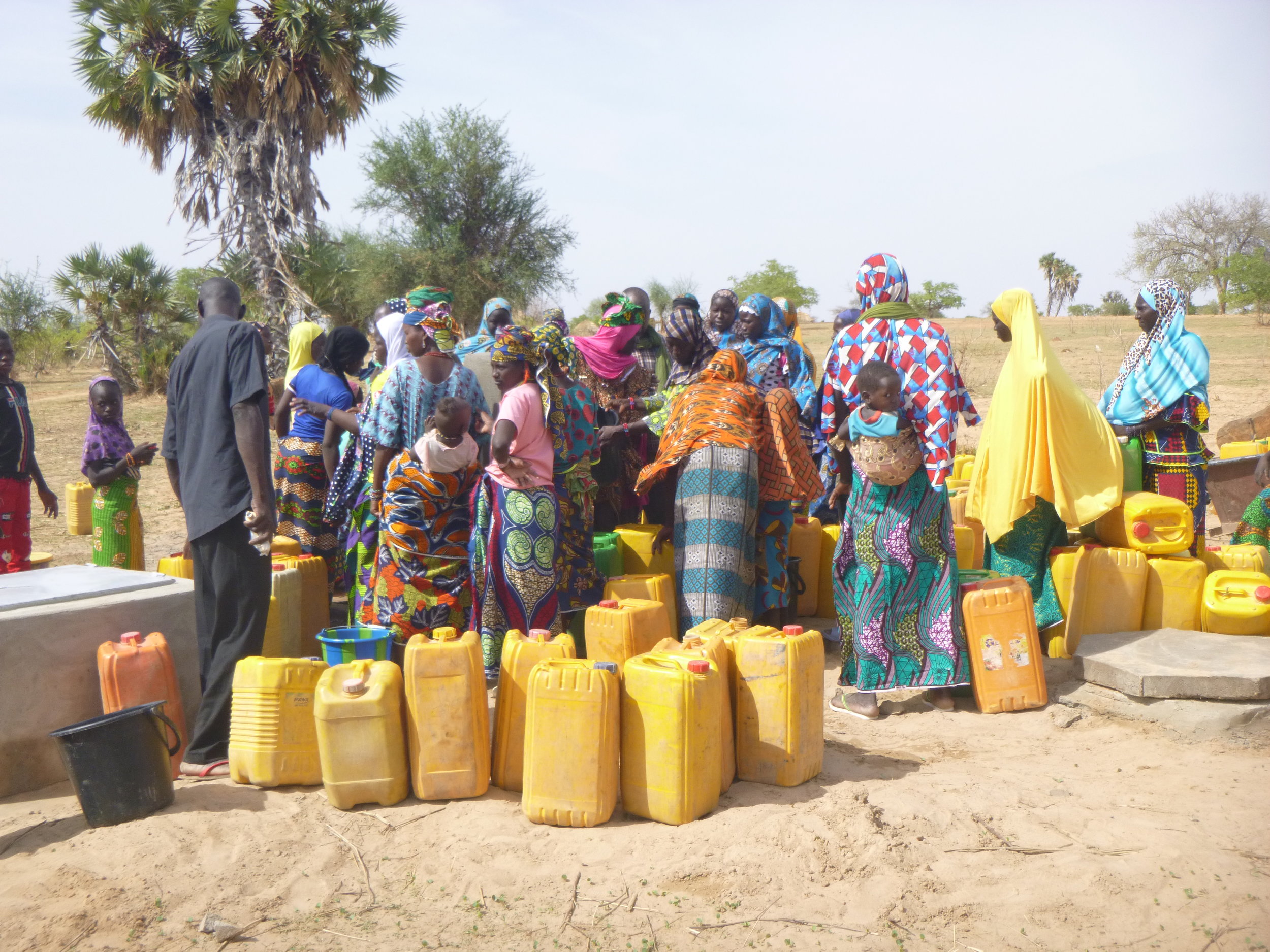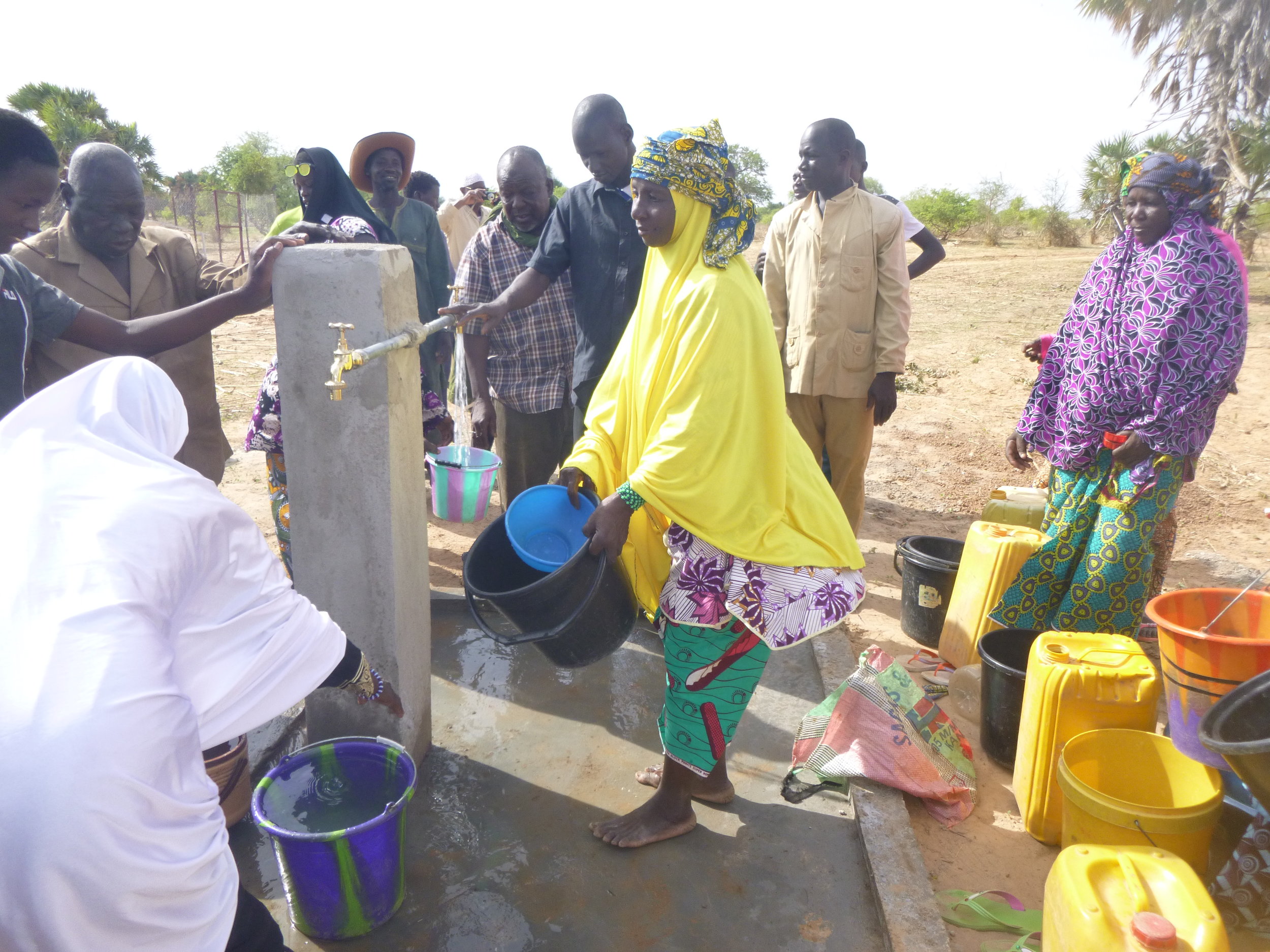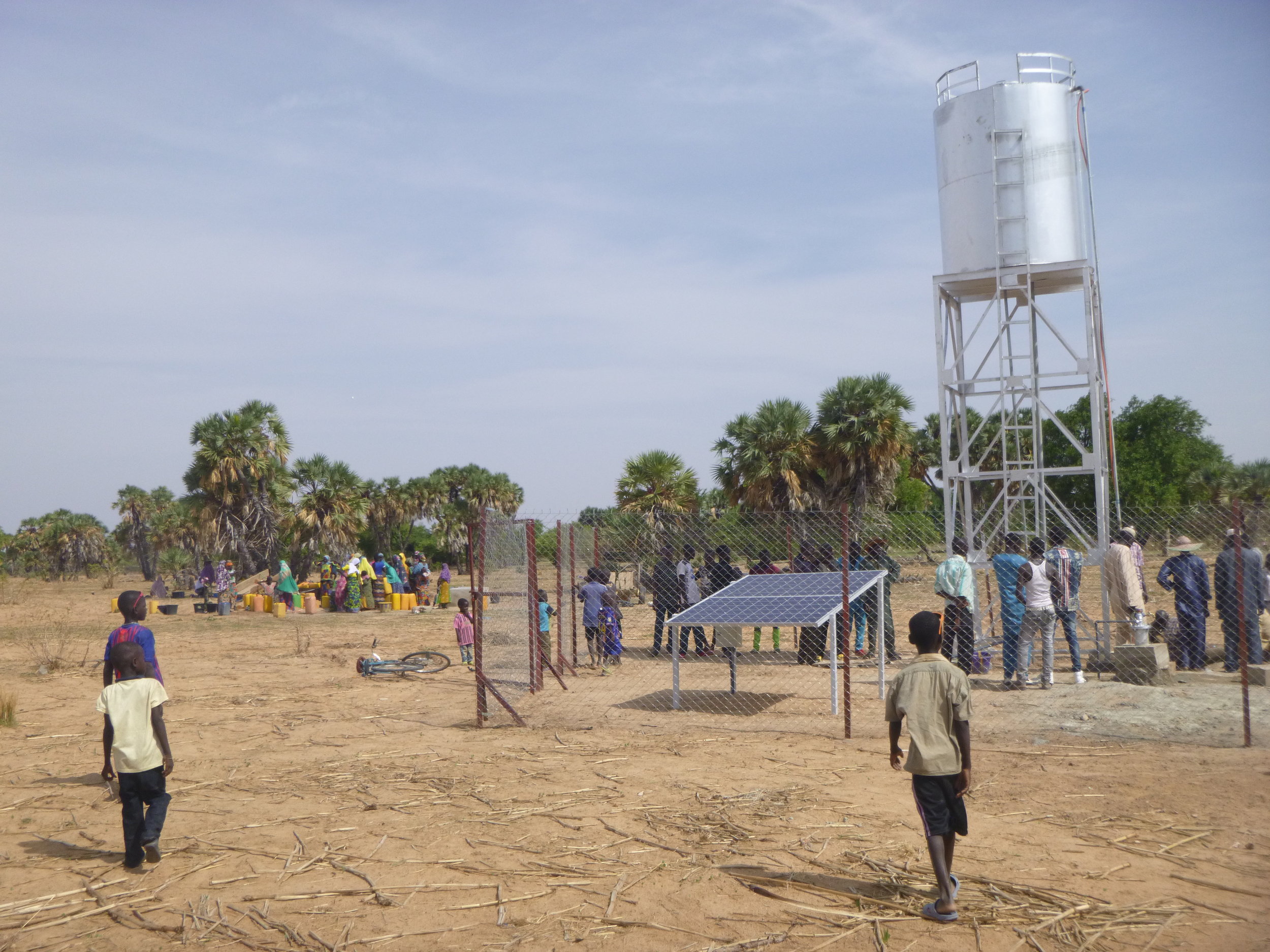Rockflower funded Rain for Sahel and Sahara’s Rain Garden. Recently, we received an update on the outcomes of the project in Niger.
Niger is a land-locked country covered predominantly by the Sahara Desert. The Tillabery region is one of the most vulnerable areas in the world to the effects of climate change. With temperature increases expected to be 1.5 times higher than the rest of the world, Niger is faced with higher inter-and intra-annual variability in rainfall, resulting in more frequent and extreme droughts and floods. This significantly impacts Niger’s already fragile soil, crop production, and availability of potable water.
The Tillabery region is where the two rain gardens that provide for 60 women in the cooperative are located. During the 2018-2019 program year, the Nassile and Tagantassou gardens produced over 46,000 lbs. of crops, such as cabbages, carrots, eggplants, green peppers and tomatoes. This enabled the women in the program to feed their families contributing to nutritious and diverse diets across their communities and to sell surplus crops for an additional profit.
The Nassilé gardeners engaged in additional income generating activities to earn 274% of the previous year’s total (594,050 fCFA) – their increased earning power was due in large part to a new cereal bank initiative (271,900 fCFA with stock remaining). The tomato crop was infested by nematodes, soil-dwelling crop pests, but this was remedied by crop rotation. Staff visits for monitoring were limited due to security concerns over the close proximity to Mali.
Gardeners in Tagantassou increased the group’s income to bring in 411% of the previous year’s earnings (150,000 fCFA) to contribute to their economic independence and garden sustainability. The Tagantassou garden faced significant challenges, including an excess of plant debris (stalks of millet, sorghum, and weeds), loss of seedlings due to animal/pest invasion, and insufficient available well water. The gardens were reconstructed, training sessions were held, and an additional well was created. The possibility of bio-briquettes to remedy the excess plant debris is also under discussion after RAIN was informed by Rockflower’s partnership with RUGLI via their Bio-Briquette Project.
Both gardens installed borehole wells over 50m in depth with solar powered submersible pumps. In Nassilé, the well produces 1.5 m3/hour of potable water, and in Tagantassou, the well produces 3.5 m3/hour. Resulting in sufficient water for consumption and reducing time poverty for women.
As risks due to climate change increase, the potential in RAIN’s work is being watched closely. In the 2019-20 program year, RAIN will expand our Sustainable Agriculture program into two new communities, Imboraghan and Betarmatas, including borehole wells, while also expanding existing gardens in Tagantassou and Nassilé.
There is an opportunity to help communities turn subsistence agriculture into a profitable business and build resilience.

